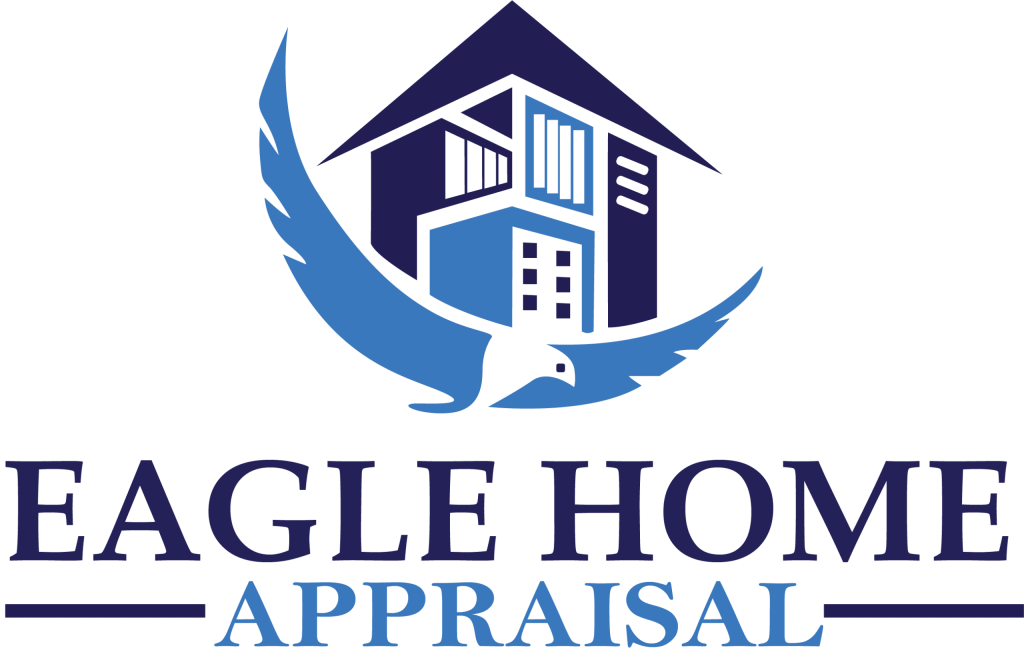Do Appraisers Consider Short-Term Rental Income (Airbnb/VRBO) In Gilbert?
 The real estate market in Gilbert, Arizona, has experienced an unmistakable transformation over the last decade. Once primarily known for its master-planned communities, safe neighborhoods, and strong school systems, the town has gained new visibility among investors, families, and vacationers alike. The rise of short-term rental (STR) platforms like Airbnb and VRBO has fundamentally changed how properties can generate income here, and with that change comes the question property owners frequently ask when seeking real estate appraisals in Gilbert: “Will my short-term rental income be factored into my home’s appraised value?”
The real estate market in Gilbert, Arizona, has experienced an unmistakable transformation over the last decade. Once primarily known for its master-planned communities, safe neighborhoods, and strong school systems, the town has gained new visibility among investors, families, and vacationers alike. The rise of short-term rental (STR) platforms like Airbnb and VRBO has fundamentally changed how properties can generate income here, and with that change comes the question property owners frequently ask when seeking real estate appraisals in Gilbert: “Will my short-term rental income be factored into my home’s appraised value?”
This is not a hypothetical concern. Gilbert has seen an explosion in STR activity, spurred by its proximity to Phoenix, year-round warm weather, golf courses, family attractions, and seasonal events like MLB Spring Training. For investors, income from weekly or nightly rentals often exceeds what they’d earn with a traditional annual lease. Owners have converted everything from luxury lakefront homes in Val Vista Lakes to single-family houses near downtown Gilbert into profitable short-term rental units.
But here’s the challenge: real estate appraisers are answerable to strict professional standards. They can’t simply “add value” because a property earns well on Airbnb. Instead, they must determine fair market value through recognized appraisal methodologies — and whether STR income is relevant depends on several key factors: legality, documentation, property type, and buyer demand for income potential in that segment of the Gilbert market.
Whether you’re planning to refinance, sell, or purchase a property in Gilbert, the information here will help you understand what’s possible, what’s not, and how to work effectively with your appraiser.
Understanding Short-Term Rental Income in Gilbert
Short-term rental income refers to revenue generated by renting out a property for periods generally shorter than 30 days at a time. These rentals differ from traditional leases in pricing, occupancy patterns, and operational demands. In Gilbert, they commonly attract:
-
Winter visitors escaping colder climates
-
Families visiting relatives or in town for events
-
Professionals needing temporary housing for business or relocation
-
Attendees at nearby sporting events, especially during Spring Training
Market Performance
Recent STR analytics for Gilbert show:
-
Average Daily Rate (ADR): $200–$270, with higher rates for luxury homes.
-
Occupancy Rate: 55–69% annually, hitting highs in March (80–95%) and lows in July/August.
-
Annual Revenue Potential: Median around $36,000–$50,000; top performers exceed $80,000.
-
Most profitable areas: Power Ranch, Agritopia, and Val Vista Lakes, due to amenities, proximity to freeways, and community appeal.
Income Volatility
The STR market, however, is not as stable as long-term rentals. Income fluctuates with tourism trends, competition, economic conditions, and even local regulation changes. For instance, a great March can be followed by a slow June.
Why Income Matters to Some Buyers — But Not All
In certain Gilbert neighborhoods, investors compete with families who have no interest in renting. In such mixed-demand areas, an appraiser may find little market evidence to show STR income shifts sales prices upward, unless comparable sales clearly demonstrate buyers paying more for properties with established, verifiable STR track records.
Understanding these nuances is crucial because they affect whether STR performance becomes part of an appraiser’s valuation model.
The Role of Appraisers in Real Estate—Why It Matters
Appraisers are licensed professionals who provide impartial, evidence-based opinions of value. In Gilbert’s real estate appraisal process, their job in a transaction or refinance is to answer one main question: What is the fair market value of this property as of today’s date? Fair market value means the price a well-informed buyer and seller would agree on in an open market, under typical conditions.
When evaluating property in Gilbert — be it a downtown bungalow, waterfront estate, or suburban family home — appraisers focus on:
-
Physical characteristics: size, age, condition, layout, upgrades
-
Location attributes: neighborhood, school district, traffic access
-
Market trends: recent sales data and buyer demand
-
Highest and best use: what the property can legally and practically be used for
-
Income potential: when the property is an investment-type asset
STR Considerations
If the property is operating as a short-term rental, an appraiser must first determine:
-
Is this the highest and best use recognized by the market?
-
Are there enough comparable sales of STRs to support its contribution to value?
-
Can the income stream be verified and shown to be sustainable?
Loans often hinge on the outcome. A too-low appraisal can derail a sale or refinance. For investors, ignoring valid STR income could undervalue profits; for lenders, overestimating can create risk.
Appraiser neutrality is essential. They are bound by the Uniform Standards of Professional Appraisal Practice (USPAP) — so personal opinions, projections without evidence, or ignoring compliance issues aren’t allowed. This is why documented, legal rental history is non-negotiable if you want STR income considered.
Traditional Appraisal Approaches: Sales Comparison and Cost Methods
When valuing a typical residential property in Gilbert, appraisers primarily use two well-established methodologies: the sales comparison approach and the cost approach. These methods are foundational to the appraisal process and remain the gold standard for most single-family homes, including many that dabble in short-term rentals.
Sales Comparison Approach
The sales comparison approach is by far the most common. Appraisers analyze recent sales of similar properties (“comps”) in the same neighborhood, adjusting for differences such as square footage, lot size, upgrades, age, and condition. The goal is to estimate what a buyer would pay for the subject property if “competing” in an open market.
- For instance, if 123 Maple Street sold for $525,000 and is nearly identical to your home but lacks a pool, an appraiser might add value for your property’s pool feature.
- This approach hinges on the availability of reliable comps. In new neighborhoods or areas with mostly owner-occupied homes, true STR comp sales may be rare.
Cost Approach
The cost approach asks: “What would it cost to rebuild this property today minus depreciation?” This is useful for newer homes but less relevant for older ones, or for properties where land value dominates.
STR Implications
Short-term rental income isn’t automatically included in either method. Appraisers only factor in STR income if it is shown to have a consistent, market-supported impact on sale prices. Most Gilbert residential neighborhoods lack enough STR-focused comps to anchor an upward adjustment directly tied to Airbnb/VRBO earnings.
Occasionally, unique homes marketed specifically as investment properties — with a robust rental history and clear evidence that buyers paid premiums for income potential — give appraisers the opportunity to bridge “income” with sales comparison.
Key takeaway:
Unless you can demonstrate that similar STR properties sold for more than traditional homes, or that buyers are paying specifically for established rental histories, short-term rental income will usually not boost a Gilbert home’s appraised value using these conventional methods. This is especially true in areas dominated by long-term residents, families, or tight-knit HOA communities where STRs may be rare or restricted.
Appraisers must strike a careful balance between market reality and investment potential — using only objective, documented evidence to justify any value premiums.
The Income Approach—When Is Rental Income Considered?
The income approach is most commonly used for properties that are clearly operated as investments — duplexes, triplexes, multi-unit buildings, or homes purpose-built for short-term rental. Here, the value is rooted in the revenue the property generates, much like valuing a business.
Gilbert Investor-Friendly Zones
Certain neighborhoods in Gilbert have emerged as small investor hotspots, where STR use is not only legal but common. Power Ranch and parts of Agritopia have seen clusters of STR-focused transactions, which help anchor cap rate assumptions in real market behavior.
When Will Appraisers Use the Income Approach for STRs?
- When the property is actively marketed (MLS, Zillow, etc.) as an income-producing Airbnb or VRBO.
- When the seller or owner can show at least 1–2 years of documented, stable rental income.
- When the buyer pool in that segment is demonstrably paying for income histories (not just home features).
- When local zoning, licensing, and HOA rules allow STR use.
In Gilbert, this means a rising number of homes — but not all. If you operate an STR without proper licenses, with sporadic rentals, or in a neighborhood with little investor interest, the income approach won’t be used.
How Do Appraisers Document and Verify Short-Term Rental Income?
Appraisers cannot simply take your word for the income your property generates. They require comprehensive, verifiable documentation that demonstrates both the history and legality of your STR business.
What Documentation Is Needed?
- Tax Returns (Schedule E): The gold standard. At least two years of reported rental income (and expenses) to the IRS.
- Property Management Statements: Monthly and annual summaries showing gross bookings, fees, occupancy, net proceeds.
- Bank Statements: Verification of deposit amounts that match booking statements.
- Online Booking Records: Airbnb/VRBO dashboards, transaction lists, guest reviews (for occupancy rates).
- Current Lease Agreements: Sometimes used in hybrid owner/renter scenarios.
- STR License: Under Town of Gilbert law, every STR must be licensed and compliant.
- Regulatory Compliance: Proof of tax payment — both state TPT and any local occupancy taxes.
What Appraisers Look For
- Consistency and Seasonality: Does the property perform year-round? Are there major revenue swings?
- Expense Ratios: Cleaning, repairs, utilities, supplies — these must be subtracted from gross income for net analysis.
- Sustainability: Is income recurring, or was there just one good year?
- Legal Compliance: Only income earned within zoning, HOA, and licensing guidelines counts toward value.
Common Pitfalls
- Inconsistent Records: Missing months, cash bookings not tracked, or inflated claims.
- Unlicensed Operations: Illegal STRs are ignored in appraisals — documented income is worthless if not permitted under Gilbert law.
- HOA Restrictions: HOA bans on STRs invalidate rental income for appraisal purposes, even if tax returns exist.
Pro Tips
Start preparing records well before you plan to refinance, sell, or appraise. Keep all documentation in a secure, accessible format, and be proactive in sharing with your appraisal professional. If you need help, consider working with a local property manager specializing in STRs to generate compliant statements and year-end summaries.
Gilbert’s Short-Term Rental Laws and Licensing Requirements
The Town of Gilbert, along with the state of Arizona, has implemented a clear legal framework for STRs. Since June 2023, all short-term rental operators must secure a Town of Gilbert Short-Term Rental License and comply with several overlapping ordinances.
Key Licensing Steps
- Register your property on the Town of Gilbert’s STR portal.
- Submit proof of ownership and location.
- Pay the licensing fee and any applicable state taxes.
- Ensure compliance with zoning rules and HOA regulations.
- Prominently display your license number on all online listings (Airbnb, VRBO, etc.).
- Collect and pay the state Transaction Privilege Tax (TPT) and occupancy tax monthly.
Enforcement
Gilbert city staff actively monitor platforms for unlicensed listings. Failing to obtain and maintain a license can result in substantial fines, forced removal from listing sites, and legal action. Repeat offenses may result in loss of rental rights for that property.
Zoning and HOA Restrictions
Not every home in Gilbert qualifies for STR use. Zoning codes determine if rentals are allowed, and HOAs are often stricter — some ban STRs entirely, others require minimum lease lengths.
- Appraisers must verify that the property is eligible for STR operation before including any income in the valuation.
Legal Risks
Attempting to operate an STR outside legal parameters not only risks fines but also devalues your property for appraisal purposes. Unlicensed Airbnb income will not be considered, period, no matter how much was earned; buyers and lenders cannot legally rely on an income stream that could be shut down by the city or a neighborhood board.
Market Impact
By 2025, over 90% of Gilbert’s active STR listings report full licensing and compliance, helping to create a transparent, investor-friendly landscape. Licensed STRs can be marketed to buyers seeking income properties, though legal scrutiny will remain strict.
Bottom Line
Before assuming your STR income raises your home’s value, confirm compliance with all city, county, and HOA regulations. Maintaining legal status is the only way to unlock the full market and appraisal potential of your property.
Navigating Fannie Mae, Freddie Mac, and Lending Guidelines
If you’re refinancing or buying with a mortgage, the rules set by Fannie Mae, Freddie Mac, and major lenders determine whether your STR income boosts your loan eligibility or property value.
Loan Qualification: How STR Income Counts
Most lenders will consider STR income only if:
- You provide two years of history — documented on Schedule E of your tax return.
- The property is legally licensed for short-term rental.
- Income is consistent and stable, verified by bank statements and management records.
- Only 75% of documented rental income typically counts towards qualification. This “haircut” accounts for vacancy loss and expenses.
Appraisal Implications
Lenders rarely accept speculative or future bookings as proof of income. Temporary STR performance (less than two years), or income earned without legal compliance, is excluded.
Fannie Mae/Freddie Mac Policies
- Both agencies recognize short-term rental income for qualifying if it’s well-documented.
- They require that your appraiser use the market rent schedule, not projections.
- Properties must be eligible under local zoning and licensing.
Gilbert’s Local Lender Landscape
Most local banks and mortgage brokers are well-versed in STR underwriting due to the town’s popularity with investors. However, requirements change periodically based on market risk, economic trends, and regulatory updates.
Common Lending Mistakes
- Counting projected Airbnb bookings as income — lenders need tax returns.
- Overstating net income (gross minus expenses only).
- Failing to verify compliance — non-licensed income is rejected.
- Trying to qualify with less than two years of STR performance.
Pro Tips for STR Owners
- Coordinate with your appraiser and lender prior to listing or refinancing.
- Keep up-to-date records and renew your license annually.
- Use professional property management to document every transaction.
By following best practices and maintaining clear, legal documentation, Gilbert STR owners can maximize both their property value and borrowing potential, ensuring a smoother transaction and more accurate appraisals.
Comparative Market Analysis: The Challenge of Finding Meaningful Comps
One of the most complex tasks for appraisers valuing STRs in Gilbert is compiling a comparative market analysis (CMA) that accurately adjusts for the property’s income potential.
Why It’s Difficult
Most neighborhoods in Gilbert are mixed — owner-occupied homes sit alongside occasional investment properties, but active STR sales remain a minority.
- This creates a comp challenge: few recently sold homes have documented, licensed rental histories or were marketed solely as STRs.
Appraiser Approach
- Search for comps in nearby neighborhoods, even across town, focusing on similar amenities, layouts, age, and STR performance.
- Use MLS data and public records to identify homes sold as STRs, review agent remarks, and analyze sale premiums.
- Adjust for features that impact STR revenue: pools, guest suites, privacy, proximity to attractions.
Evidence Needed
- A true STR comp means a property with licensing, legal operation, proven STR income, and clear buyer intent (purchased for investment).
- If a premium is observed — such as STRs selling 8–12% above market due to income history — appraisers can justify upward adjustments for these properties.
Otherwise, if no significant income premium is shown in comps, STR value enhancement may be minimal or “imputed only” (i.e., shown as marketing potential, not appraised value).
Local Examples
- Power Ranch: Several lakefront homes sold in 2024 with STR licenses and tax returns attached, creating new benchmarks.
- Downtown Gilbert: High walkability leads to occasional STR premiums — documented in select comps.
- Val Vista Lakes: STR-friendly amenities have sustained higher sale prices, but licensed STR comps still make up less than 10% of recent sales.
The challenge is real: unless the local market supports a consistent uptick in sale prices for licensed, income-producing STRs, Gilbert appraisers must rely mostly on conventional comps, with only limited, carefully documented income adjustments.
What Gilbert Buyers, Sellers, and Investors Need to Know
Sellers
If you’re selling a home with a profitable, licensed STR history:
- Gather all relevant documentation (tax returns, booking reports, license).
- Confirm compliance with city and HOA rules.
- Market the home to investor-buyers, not just families — highlight annual revenue, occupancy, and professional management.
- Be candid about seasonality, expenses, and historical net income.
- Engage an appraiser familiar with STRs in Gilbert.
Buyers
Interested in acquiring a home for Airbnb/VRBO use?
- Research neighborhood regulations, HOA limitations, and licensing requirements in advance.
- Assess the property’s STR fit: separate guest spaces, parking, proximity to local attractions.
- Request income documentation — do not assume advertised numbers are accurate.
- Calculate your own net income after expenses, taxes, and vacancy.
- Review comps: are buyers actually paying more for STRs locally?
Investors
Savvy investors know that Gilbert’s market rewards compliance, documentation, and location:
- Focus on neighborhoods with established STR activity and legal licensing support.
- Negotiate price based on documented income, not future “projections.”
- Build a track record — two years of steady income maximizes appraisal value.
- Consider seasonal pricing strategies: peak months (March/April) demand aggressive rates.
Refinancers
Plan ahead by:
- Preparing two years’ Schedule E, bank statements, and occupancy reports.
- Working with appraisers and lenders who specialize in investment property valuation.
- Understanding lender-specific “haircuts” on eligible rental income.
For All Gilbert Homeowners
- Compliance drives value. Unlicensed or sporadic STR use will rarely raise an appraisal.
- Local expertise matters. Eagle Home Appraisal Gilbert is deeply versed in STR market trends, regulatory shifts, and investor psychology.
- Prepare to educate buyers, appraisers, and lenders about your unique income story.
By taking these practical steps, you maximize the real-world, documented impact of STR performance in Gilbert home valuations.
Best Practices to Maximize Appraised Value for Gilbert STRs
Want your short-term rental income to be fully recognized in your next appraisal? Follow these best practices engineered for Gilbert’s STR landscape:
1. Maintain Meticulous Records
Keep all income, expense, booking, and tax documentation in organized digital files — at least two years’ worth.
2. Obtain and Renew Licensing
Nothing kills STR value faster than illegal operation. Always obtain your Town of Gilbert STR license and renew it annually.
3. Comply With HOA and Zoning Rules
Confirm your property’s eligibility. HOAs can restrict or ban STRs; unqualified homes lose value for appraisal and buyers.
4. Invest in Property Upgrades
Modernize amenities: pools, guesthouses, smart home tech, and luxury finishes drive both higher bookings and appraised value.
5. Document Professional Management
Show evidence of professional property management — this reassures buyers, lenders, and appraisers about income sustainability.
6. Target the Right Buyers
List your home to attract investor-buyers, using STR statistics in marketing materials.
7. Adjust Pricing Strategically
Stay ahead of the market — optimize rates for peak months and minimize vacancy during off-seasons.
8. Practice Full Compliance Year-Round
Pay all required taxes promptly, keep up-to-date booking calendars, and follow city/state rules to the letter.
9. Leverage Local Data
Use platforms and analytics tools to benchmark your home against other Gilbert STRs. Share data with appraisers to support valuation.
10. Work With STR-Savvy Appraisers
The Eagle Home Appraisal Gilbert team brings deep experience and credibility to both residential and investment property appraisals — essential for maximizing value recognition.
By employing these best practices, STR owners in Gilbert position themselves for premium valuations, smoother transactions, and sustainable long-term success.
Conclusion:
The question, “Do appraisers consider short-term rental income (Airbnb/VRBO) in Gilbert?” has a nuanced answer rooted in both local market realities and professional appraisal methodology. As Gilbert’s STR market continues to flourish — thanks to its climate, amenities, and investor-friendly reputation — owners must understand that income alone does not guarantee a higher appraisal.
Eagle Home Appraisal Gilbert: Your Local STR Specialists
Eagle Home Appraisal Gilbert’s team knows the nuances of STR valuation inside and out. Our professionals stay up-to-date on every regulatory change, lender policy, and market trend, ensuring your appraisal truly reflects the real value your property offers.
- We verify eligibility, analyze comps, and incorporate income only when fully supported.
- We educate clients about the process, pitfalls, and legalities unique to Gilbert STRs.
- We offer actionable guidance — from documentation checklists to marketing strategies — designed to maximize your property’s value.
Ready for an appraisal that fits not just your home, but your income-generating future?
Contact Eagle Home Appraisal Gilbert today. Our team is committed to providing the most reliable, accurate, and locally informed valuations in the market, setting you up for success whether buying, selling, refinancing, or investing.
Next Up: Some property evaluations are quicker and simpler than others. In our next post, we’ll explore When Are Drive‑By Appraisals Used Instead of Full Appraisals in Arizona? and why sometimes a streamlined approach is the only practical way to assess a home’s value.
Divorce Appraisals
At Eagle Home Appraisal Gilbert, we specialize in providing expert divorce appraiser services, offering expert witness testimony when necessary.
Estate & Trust Appraisals
At Eagle Home Appraisal Gilbert, we offer a comprehensive range of professional estate appraisal services to facilitate estate and trust planning.
IRS & Tax Appraisals
At Eagle Home Appraisal Gilbert, we specialize in providing professional IRS tax appraisal services to minimize capital gains on inherited property.
Real Estate Appraisal
Eagle Home Appraisal is a group of independent fee appraisers committed to delivering competent, credible, and reliable appraisal reports.
Eagle Home Appraisal Services Near Me
Comprehensive Property Appraisals
Expert Witness Testimony
Fair Market Value Assessments
Rapid Turnaround Times
Customized Solutions
Contact Eagle Home Appraisal Today
For more information about our services, get in touch with Eagle Home Appraisal. Our team is dedicated to providing the best customer service, ensuring all your appraisal needs are met with professionalism and expertise. Contact us today to learn more about how we can assist you.
Get A Free Consultation

copyright @2025 all rights reserved | Privacy-policy



